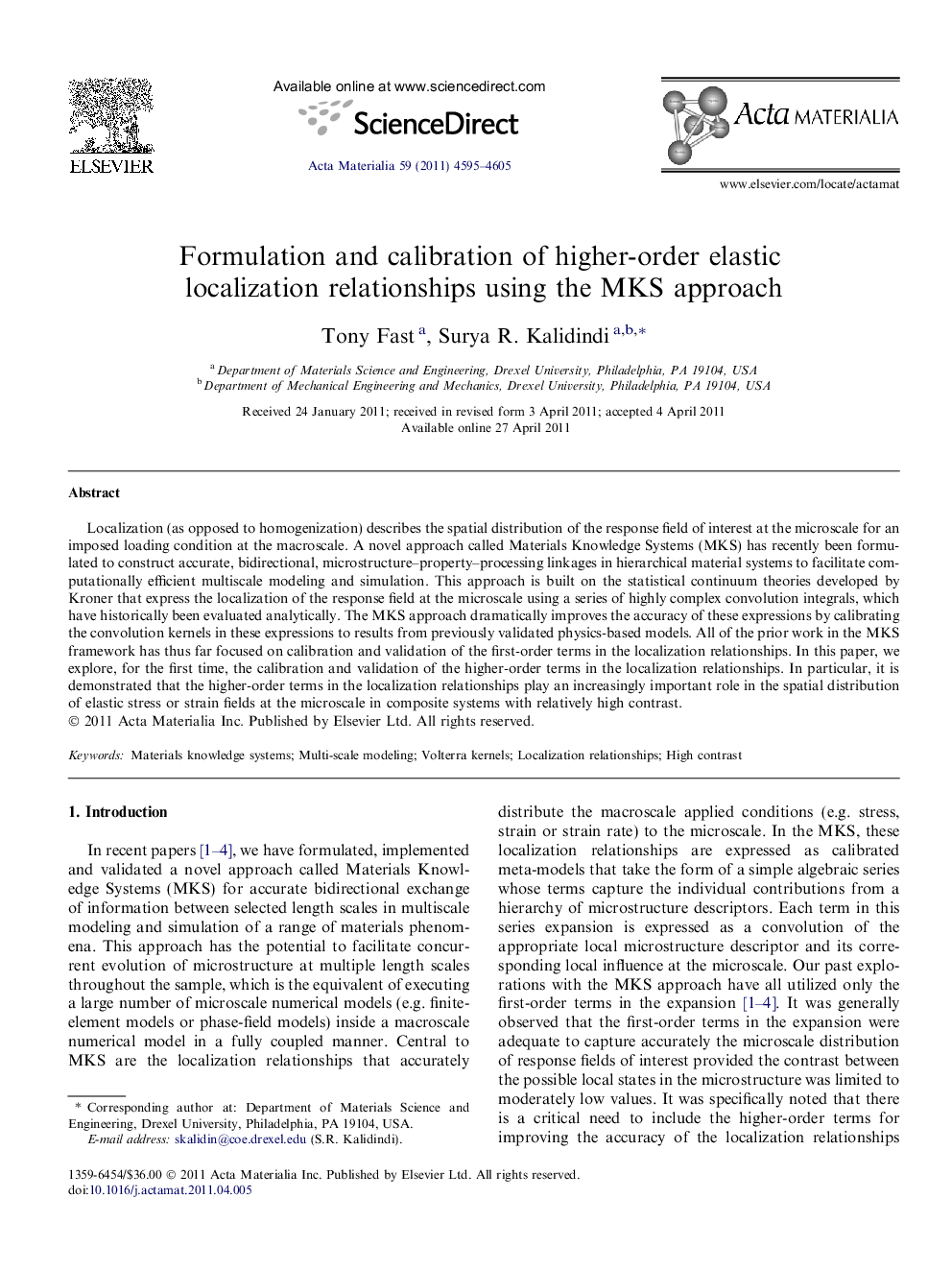| Article ID | Journal | Published Year | Pages | File Type |
|---|---|---|---|---|
| 1447038 | Acta Materialia | 2011 | 11 Pages |
Localization (as opposed to homogenization) describes the spatial distribution of the response field of interest at the microscale for an imposed loading condition at the macroscale. A novel approach called Materials Knowledge Systems (MKS) has recently been formulated to construct accurate, bidirectional, microstructure–property–processing linkages in hierarchical material systems to facilitate computationally efficient multiscale modeling and simulation. This approach is built on the statistical continuum theories developed by Kroner that express the localization of the response field at the microscale using a series of highly complex convolution integrals, which have historically been evaluated analytically. The MKS approach dramatically improves the accuracy of these expressions by calibrating the convolution kernels in these expressions to results from previously validated physics-based models. All of the prior work in the MKS framework has thus far focused on calibration and validation of the first-order terms in the localization relationships. In this paper, we explore, for the first time, the calibration and validation of the higher-order terms in the localization relationships. In particular, it is demonstrated that the higher-order terms in the localization relationships play an increasingly important role in the spatial distribution of elastic stress or strain fields at the microscale in composite systems with relatively high contrast.
